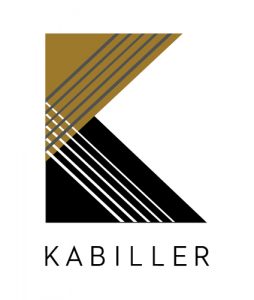Awards and Honors, News, Other
Northwestern University’s International Institute for Nanotechnology Announces Distinguished Winners of Kabiller Prizes
September 14, 2023

Jeffrey Hubbell, Eugene Bell Professor in Tissue Engineering, Vice Dean and Executive Officer at the Pritzker School of Molecular Engineering at the University of Chicago, stands outside the William Eckhardt Research Center April 27, 2023. (photo by John Zich)
Northwestern University’s International Institute for Nanotechnology (IIN) announces the recipients of the Kabiller Prize in Nanoscience and Nanomedicine, the Kabiller Young Investigator Award and the Kabiller Rising Star Award for their remarkable contributions to the intersection of nanoscience, technology, biology and medicine.
EVANSTON, Ill. — Renowned researcher Jeffrey A. Hubbell has received the 2023 Kabiller Prize in Nanoscience and Nanomedicine, an annual award given by Northwestern University’s International Institute for Nanotechnology (IIN) to one scientist for outstanding achievements in the field.
 Hubbell’s work has revolutionized the fields of nanoscale bioengineering and regenerative medicine, exemplifying the spirit of innovation and excellence that the Kabiller Prize represents. He also has demonstrated a commitment to advancing scientific discovery for the betterment of humanity.
Hubbell’s work has revolutionized the fields of nanoscale bioengineering and regenerative medicine, exemplifying the spirit of innovation and excellence that the Kabiller Prize represents. He also has demonstrated a commitment to advancing scientific discovery for the betterment of humanity.
“Receiving the Kabiller Prize in Nanoscience and Nanomedicine is a true honor,” said Hubbell, the Eugene Bell Professor in Tissue Engineering at University of Chicago’s Pritzker School of Molecular Engineering. “I undertake research in nanomedicine from an engineering perspective, diving deeply into the biology with the hope and goal of improving lives. Together with my colleagues and students, I am confident we will continue to make advances.”
Said Michael H. Schill, president of Northwestern University: “It is a privilege to honor Jeffrey Hubbell as this year’s Kabiller Prize winner within the auspices of IIN. His groundbreaking work and transformative achievements in the field of nano bioengineering resonate perfectly with IIN’s mission to advance knowledge and pioneer breakthroughs that promise a better future for humanity.”
A Pioneer in Nano Bioengineering: Jeffrey Hubbell
Hubbell’s contributions to tissue engineering and regenerative medicine have laid the foundation for innovative approaches that bridge the gap between laboratory discoveries and real-world clinical applications. His visionary work on inverse vaccines using polymeric nanovectors promises to revolutionize the field by offering new routes to the treatment of difficult-to-treat conditions like celiac disease and multiple sclerosis. Beyond the laboratory, his leadership and founding of Anokion, Inc. underscores his dedication to translating cutting-edge breakthroughs into practical medical solutions.
Moreover, Hubbell’s impact extends to immuno-oncology, where his matrix-binding technologies pave the way for next-generation biologics with the potential to reshape cancer treatment. His leadership in founding Arrow Immune, Inc. further exemplifies his commitment to translating innovative technologies into the clinic, promising a brighter future for cancer patients.
“Jeffrey Hubbell’s legacy in the field of nanotechnology is marked by innovation and impact,” said David Kabiller, a business leader and philanthropist whose generous donation established the prize. “His groundbreaking work, from developing polymeric nanovectors for novel vaccines to engineering cytokines for autoimmune diseases, has demonstrated the power of nanotechnology in transforming health care. With this year’s Kabiller Prize, we honor not only his achievements, but also his commitment to translating these technologies from the lab to the clinic, positively affecting countless lives.”
Hubbell’s engineering of cytokines to modulate inflammatory responses, particularly in autoimmune diseases, showcases his dedication to address pressing medical challenges. His founding of HeioThera, Inc. further emphasizes his commitment to ensuring that these breakthroughs reach those in need.
“Jeff Hubbell is a pioneering researcher and early entrepreneur in tissue engineering who has made a tremendous difference to the field,” said Matthew Tirrell, dean of the Pritzker School of Molecular Engineering at University of Chicago. “In addition to his distinguished achievements in bioengineering and immunotherapy, Jeff also has trained dozens of other leaders in the field in his laboratory. His innovative development of materials that stimulate the immune system to fight infection or malignancy according to design, disabling certain aspects of the immune response to address auto-immune diseases such as multiple sclerosis or celiac disease have affected people for the better. Jeff Hubbell’s extraordinary accomplishments truly merit the Kabiller Prize in Nanoscience and Nanomedicine.”
The Vision of David G. Kabiller
 The Kabiller Prize in Nanoscience and Nanomedicine, the Kabiller Young Investigator Award and the Kabiller Rising Star Award have been made possible through the visionary generosity of entrepreneur and Northwestern trustee and alumnus David G. Kabiller (’85, ’87 MBA). In 2015, Mr. Kabiller’s forward-thinking donation established these awards to honor and support exceptional nanoscience and technology and nanomedicine achievements. His commitment to fostering scientific breakthroughs and advances continues to inspire researchers and clinicians, fostering a culture of excellence in these critical areas.
The Kabiller Prize in Nanoscience and Nanomedicine, the Kabiller Young Investigator Award and the Kabiller Rising Star Award have been made possible through the visionary generosity of entrepreneur and Northwestern trustee and alumnus David G. Kabiller (’85, ’87 MBA). In 2015, Mr. Kabiller’s forward-thinking donation established these awards to honor and support exceptional nanoscience and technology and nanomedicine achievements. His commitment to fostering scientific breakthroughs and advances continues to inspire researchers and clinicians, fostering a culture of excellence in these critical areas.
“In the world of science, it takes visionaries like David Kabiller to transform bold ideas into reality” said Chad Mirkin, founding director of the IIN. “His steadfast support has been the catalyst for turning revolutionary concepts into tangible breakthroughs. David’s foresight drives our journey to redefine what’s possible in nanomedicine.”
Celebrating Excellence: Kabiller Young Investigator Award
 The recipient of this year’s $10,000 Kabiller Young Investigator Award is Xiaodong Chen. As the President’s Chair Professor in Materials Science and Engineering at Nanyang Technological University in Singapore, Chen has made significant contributions to developing nanomaterials, nanotools and nanotechnologies. His work fabricating close-to-human sensing devices have transformative implications for nanoscience and nanomedicine. His achievements include the creation of nanomaterials for conformal bioelectronic interfaces, which have led to breakthroughs in human-machine integration and reliable biological signal sensing from the human body. Chen’s artificial neurons and biphasic nano-dispersed (BIND) interface are promising in the realms of neuromodulation devices, on-skin biosensors and targeted nanoparticles for enhanced drug delivery.
The recipient of this year’s $10,000 Kabiller Young Investigator Award is Xiaodong Chen. As the President’s Chair Professor in Materials Science and Engineering at Nanyang Technological University in Singapore, Chen has made significant contributions to developing nanomaterials, nanotools and nanotechnologies. His work fabricating close-to-human sensing devices have transformative implications for nanoscience and nanomedicine. His achievements include the creation of nanomaterials for conformal bioelectronic interfaces, which have led to breakthroughs in human-machine integration and reliable biological signal sensing from the human body. Chen’s artificial neurons and biphasic nano-dispersed (BIND) interface are promising in the realms of neuromodulation devices, on-skin biosensors and targeted nanoparticles for enhanced drug delivery.
“It is my great honor to receive this award, a recognition that underscores the significance of my research in the field of nanoscience and nanomedicine,” Chen said. “Over the last few years, we have invented various patent-pending technologies in biosensing, flexible devices, neural interfaces and health care, and this award is a testament to the scientific impact of our innovations. As we continue to push the frontiers of nanotechnology within the global scientific community, I am excited to continue developing transformative solutions that can benefit society.”
Recognizing Emerging Talent: Kabiller Rising Star Award

Ke Zhang is the recipient of the Kabiller Rising Star Award. This $2,000 award, established in 2021, celebrates outstanding contributions by early career faculty. Zhang, a professor in Northeastern University’s department of chemistry and chemical biology, has made contributions to synthesizing DNA-polymer biohybrid materials and understanding their properties and uses in life sciences and medicine. His research offers fundamental insights into the interactions of new nanomaterials with living systems, and he has used this knowledge to develop practical applications that benefit humanity. His work has promising implications on the development of novel gene regulation therapeutics in diseases like non-small cell lung carcinoma and Duchenne muscular dystrophy.
All three award winners will speak at the 2023 Rosemary Schnell IIN Symposium at Northwestern University in Evanston on Thursday, Nov. 2, 2023.
About the International Institute for Nanotechnology
Based in the IIN, the Kabiller Prize is at the forefront of nanotechnology research, setting the standard for innovation and collaboration.
Founded in 2000 as an umbrella organization to coalesce and foster nanotechnology efforts, the IIN currently represents and unites more than $1 billion in nanotechnology research, educational programs and supporting infrastructure.
To learn more about the International Institute for Nanotechnology and the Kabiller prizes, please visit iinano.org.